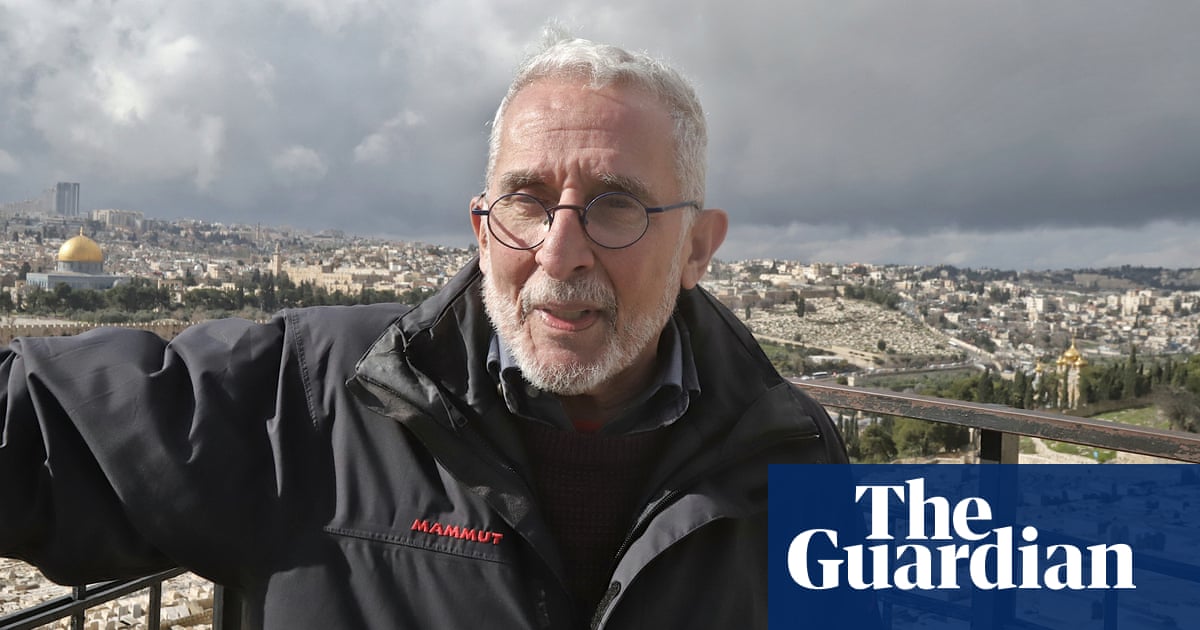
Nearly 200,000 of the 700,000 Israeli settlers in the West Bank would have to be relocated to Israel to create a viable Palestinian state, according to an Israeli lawyer from whom the UK foreign secretary, Lord Cameron, has sought advice on his visits to Israel.
Cameron has said he realises reaching a two-state solution would be tough, but he has not spelled out the practical consequences in terms of borders, including the need to persuade so many Israelis to relocate.
Cameron acknowledged his debt to Daniel Seidemann in giving evidence to a Lords select committee last week, saying he always seeks his advice when he visits Jerusalem.
In an interview with the Guardian, Seidemann said: “If Israel has the will, or capacity, to relocate 200,000 settlers from the West Bank and Jerusalem, a two-state solution is a viable option. If it does not have the will, the two-state solution is dead. The number might be better than most people think, but it is quite daunting.
“If you can annex incrementally, you can deoccupy incrementally.”
The remaining settlers would remain on land swapped between Israel and Palestine. Leaving settlers under Palestinian sovereignty would be unacceptable to both sides, he says.
Cameron first met Seidemann in 2007 when he was Conservative opposition leader and they often went up to the Mount of Olives to look across to the West Bank, home to large Israeli settlements such as Ma’ale Adumim, a city of 40,000.
Although Cameron, a strong supporter of Israel, takes advice on Israel from many sources, his repeated conversations with Seidemann shows his willingness to take a range of guidance, and his regard for the 70-year-old lawyer’s knowledge of the geographical mechanics of the occupation.
When they first met, Seidemann calculated that only 100,000 Israelis would need to be relocated. He said he supported the actions western governments were taking, such as visa bans, to signal their disapproval of settler violence. “I don’t think Israel can be bludgeoned into submission, but it is by changing the rules of engagement so that when Israel adopts destructive policies, it knows there will be consequences.”
He admitted: “Currently, Israel does not have the will to relocate one settler. It has the capacity.”
Seidemann stressed that he did not see a two-state solution as an objective, saying: “The objective is ending the occupation in a way that is compatible with the interests of both sides. If the occupation does not end, it is going to be the end of Israel and of the Palestinians. The only way to end the occupation is a border. I wish it were otherwise, but it is not.”
One difficulty among many, he said, was that “isolated satellite [settlements] is where the ideologically hardcore and sometimes violent settlers live … Those that are willing to be relocated do not need to be relocated and those that do need to be relocated are unwilling to move and will fight.
“Israel was a piece of broken pottery before October 7. The war has smashed things to smithereens.” He insisted that some shards of hope exist nevertheless.
“It is now commonly perceived that Netanyahu bears responsibility for much of this because he thought he could contain Hamas, and not have to deal with the core issues. In that, the international community was also wrong. It thought, ‘We have Ukraine, climate change, China and the Pacific Rim, so we thought this could be put on the back burner.’
“Now the atmosphere is like August 1914 or the Cuban missile crisis. It is now clear there is no walking away and we cannot do this on the cheap.”
He also predicted that “Netanyahu will be gone. The only question is how much damage he will cause on the way out. All of the people of consequence in Israel have zero faith in him. What comes after him is unknowable. But there is a sense that we have to reestablish the state of Israel.
“It will be a very traumatised public that does not want to hear about peace, but there will be new leadership, many of whom will come from the military because they are the most coherent, and almost all of them are two-staters.”
Seidemann said he supported normalisation between Arab states and Israel, but that in practice “It was a disaster, because it disincentivised Israel from reaching a deal on the Palestinian question and left Palestinians feeling hopeless. Now there is a realisation in the Arab world that the Palestinians cannot be ignored.
“A detailed political agreement on a two-state solution is not for the immediate future, but you cannot go anywhere without knowing where you are going. There is no day after without a North Star.”











